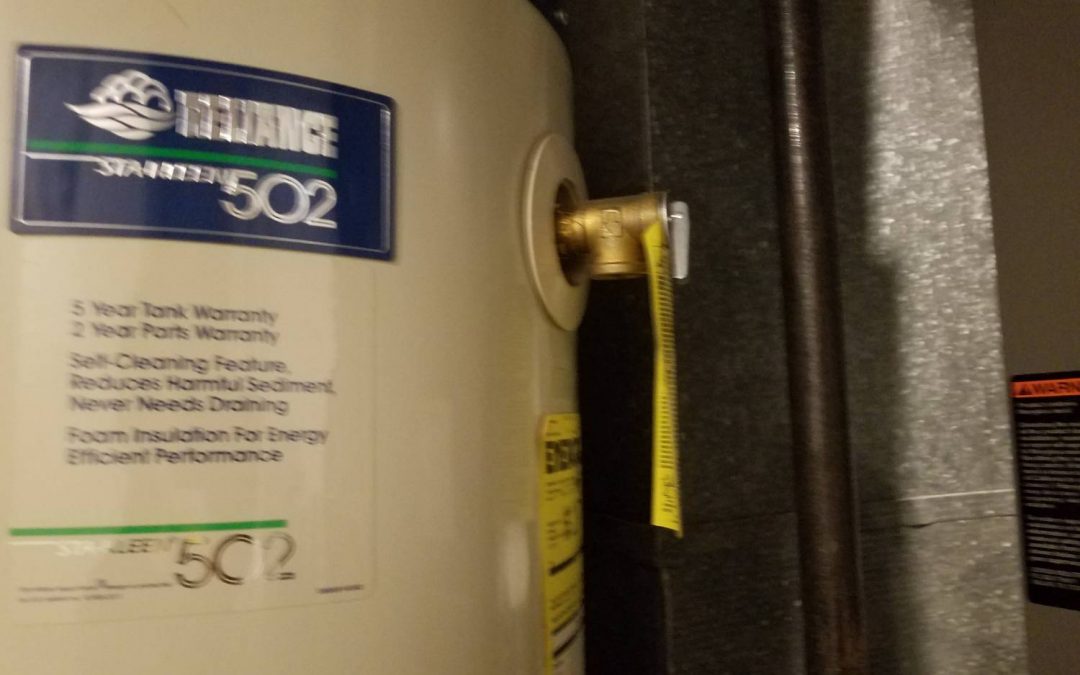A few years ago there was a great episode of Myth Busters where they tested what would happen if a water heater in a house exploded. The water heater literally shot out of the roof like a rocket! (Watch here) You may be wondering, “Could this happen to me?” Here are a few tips to help keep your water heater, and family safe.
First off, the Temperature Pressure Relief Valve (TPR Valve) is a safety device that is crucial to a water heater and protects the occupants in the home. If the temperature or pressure inside the tank exceeds safe levels, the device will release scalding hot water at enormous pressure, in order to prevent the water heater from exploding (think back to the Myth Busters episode).
Another important part of the TPR valve that is often not even installed is the TPR valve extension. The TPR valve is always installed near the top of the water heater because this is where the hottest water is. The TPR extension is a pipe that should run down and discharge around 6 inches above the floor. This is installed in case occupants are around the unit when the TPR valve goes off, to prevent the scalding hot water from spraying out the top of the unit. It is a simple fix to prevent this but all too often this important piece is not installed and the home owners have no clue that they could be in danger.
There are also many ways that people install the extension wrong. One common mistake is to use a garden hose and run it to the floor drain. Why is this a problem? Imagine a fire hose that has no one in control of it spraying every which way with enormous pressure. Now imagine that the hose is a garden hose connected to the water heater, spraying scalding hot water on everyone and everything in the vicinity. Not a good situation!
Other common incorrect installations include installing the extension to discharge too high off the ground, and Installing the extension to the back of the unit which prevents it from being monitored for leaks. The TPR valve should never be leaking. If it is, then either the valve is faulty or the temperature is getting too hot and reaching dangerous levels. All of these issues should be fixed by a licensed plumber.
For more information or to have the water heater for your new home inspected, call Matt today!


Recent Comments